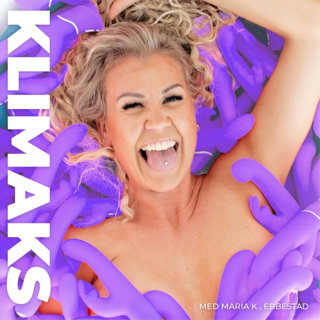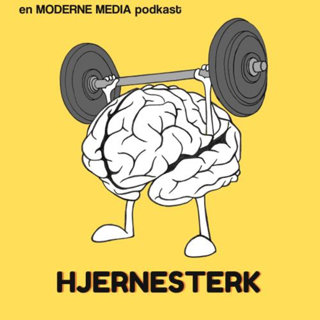
Sodium Sensitivity is a Potassium Deficiency
Let's talk about salt sensitivity and the dangers of consuming too much salt. Consuming too much sodium can lead to certain health problems, including: • Heart disease • High blood pressure • Stroke • Edema • Increased mortality The body tends to hold sodium when a person has a potassium deficiency. You can even have salt sensitivity, which causes you to retain sodium and water. But, again, this could be caused by a potassium deficiency. Sodium and potassium work together in the body. The daily requirements for sodium are 2300 mg, but the daily requirements for potassium are 4700 mg. You really need twice as much potassium as sodium. Many people aren't consuming enough potassium in their diet but consume a lot of sodium. A genetic problem can also cause some people to be salt sensitive. I believe one of the best things you can do for salt sensitivity is to increase your potassium. I don't think a low-salt diet is the answer. You don't want to end up having a potassium deficiency and a sodium deficiency. You need sodium and potassium to support the body in many different ways. If you're deficient in these key electrolytes, you could experience arrhythmias, fatigue, and weakness. Overall, you need sodium, but you need a lot more potassium.
22 Okt 20233min

The #1 Best Way to Prevent Cataracts
Let’s talk about the best remedies for cataracts and how to help prevent cataracts naturally. Cataracts are a problem with the lens of the eye—the lens becomes opaque and is difficult to see through. Glycation is one of the top causes of cataracts. Glycation is a term to describe the combining of sugar with protein or sugar with fat. The more glycation occurs in a person’s lenses, the more eye problems they could experience. Glycation could be why people with diabetes have a higher risk of cataracts and another reason why a low-sugar, low-carb diet is so important. Top causes of cataracts: • Glycation • Aging • Chronic use of steroids • Chronic stress • Alcohol • Smoking • Exposure to microwaves • Junk foods • Exposure to certain chemicals • Oxidation • High-sugar diets The best natural remedies for cataracts: 1. Intermittent fasting 2. Cruciferous vegetables 3. Egg yolks 4. Selenium 5. Vitamin C 6. Vitamin E 7. Zinc 8. NAC 9. Thiamine (vitamin B1) 10. Riboflavin (vitamin B2)
21 Okt 20237min

The Top Vitamin Deficiency with Acne
Today I’m going to share the best remedies for acne. When a person has acne, multiple things are happening at once. The oil glands are called sebaceous glands—they make oil or sebum. Usually, the sebaceous glands are inflamed, enlarged, and producing too much oil. Typically, bacteria are also involved, affecting the immune system and creating more inflammation. One of the biggest causes of acne is a shift in hormones. But, a high-carb diet and frequent eating can also cause acne. It’s essential to get on a low-carb diet and do intermittent fasting to help get rid of acne fast. Another one of the top acne causes is a deficiency in vitamin D. Vitamin D can regulate bacteria involved in acne—it’s a potent antibacterial. If you're deficient in vitamin D, you won’t be able to control acne-causing microbes. Vitamin D also supports the sebaceous glands to help reduce swelling of the glands and oil production. The best natural remedies for acne: 1. Take vitamin D3 (20,000 IU) 2. Get on the Healthy Keto® diet 3. Do intermittent fasting 4. Stop scrubbing your skin 5. Consume cod liver oil 6. Consume fatty fish
21 Okt 20237min

The #1 Food Highest in Vitamin K2
Today we're going to talk about vitamin K2, and I'm going to share the best source of vitamin K2. While vitamin K1 supports blood clotting, vitamin K2 supports calcium transportation. Vitamin K2 works with vitamin D. Vitamin K2 and vitamin D3 are important to take together. Vitamin D raises calcium in the blood, but vitamin K2 pushes calcium from the blood into the bone. Vitamin K2 also uses LDL cholesterol as part of its transportation process. The health benefits of vitamin K2: • It supports healthy bones • It supports strong teeth • It helps prevent calcium from building up in the arteries, cartilage, and joints • It helps support healthy blood sugar levels • It helps generate ATP (energy) • It supports healthy testosterone levels • It supports the brain Vitamin K1 and vitamin K2 are fat-soluble—low-fat diets may lead to a vitamin K2 deficiency. Cheese, especially hard cheese, is a rich source of vitamin K2, with Muenster cheese at the top of the list. Other foods high in vitamin K2: • Grass-fed butter • Goose liver • Duck liver • Duck fat • Eel • Beef liver • Lamb's liver • Ground beef • Grass-fed hot dogs • High-quality bacon • Pork • Sauerkraut • Cod liver oil
21 Okt 202311min

The Vital Gallbladder-Thyroid Connection
Today I’m going to reveal how problems with the gallbladder could be related to the thyroid. Bile contains bile salts, lecithin, bilirubin, protein, and cholesterol. If a person has too much cholesterol and not enough bile salts, they could develop gallstones. However, cholesterol is necessary to help you make bile, hormones, and vitamin D. The body makes the majority of cholesterol in the body. The liver makes bile. Bile helps eliminate excess cholesterol and certain toxins. It also helps break down fats and supports the absorption of fat-soluble vitamins and fatty acids. A person with hypothyroidism or a subclinical hyperthyroid issue has an increased risk of gallstones. Many different connections cause this increased risk, but overall, it takes a healthy thyroid to make enough bile and bile to create a healthy thyroid. Ultimately, I believe a lack of fat and cholesterol in the diet can increase your risk of gallstones and hypothyroidism from multiple angles. The Healthy Keto® diet can help supply the fats and important vitamins and minerals your body needs. Learn more about Healthy Keto in my other videos.
20 Okt 20239min

The REAL Cause of Chronic Kidney Disease and Polycystic Kidney Disease
Today I’m going to share some important information related to chronic kidney disease. 10% of cases of end-stage renal disease are related to polycystic kidney disease. Polycystic kidney disease has mainly been thought of as a genetic problem, and until fairly recently, many people thought you couldn’t do much about genetic diseases. But it turns out that you can. Some of the top warning signs of polycystic kidney disease are increased risk of infection, urinary bleeding, reduced function of the kidneys, and high blood pressure. A recent study done on mice found that the ketogenic diet halted and reversed polycystic kidney disease in the mice. They also found that time-restricted eating created a similar effect. Another study found that the keto diet may reduce the risk of kidney stones as long as the person is also on a low-oxalate diet. Along with keto and consuming low-oxalate foods, consuming enough water may help reduce the risk of kidney stones. In the study on polycystic kidney disease, they found that the cysts absorb glucose and are dependent on glucose. Glucose can contribute to other kidney issues as well. A low-carb diet and fasting are both great ways to get your body to start making ketones. You can also take ketones. The best natural remedies for kidney problems: • Curcumin • Resveratrol • EGCG (in green tea) • Quercetin • Berberine What I would do for chronic kidney disease: 1. Take the above natural remedies 2. Go on a low-oxalate keto diet 3. Do intermittent fasting
20 Okt 20237min

The 5 Things You MUST Know about Epstein-Barr Virus (EBV)
Today I want to explain five things you need to know about the Epstein-Barr virus (EBV). Roughly 95 percent of the population has the Epstein-Barr virus. The more you know about EBV, the less you’ll be adversely affected by it. The Epstein-Barr virus can use different strategies to go under the radar and survive in a person’s body. The virus can go dormant and become very difficult for the body to detect. You can never get rid of EBV—you have to focus on keeping it in remission. To keep it in remission, you need to understand the strategies of the virus and how to support the immune system to keep it under control. Important things to know about the Epstein-Barr virus: 1. You can’t get rid of it 2. It’s associated with an increased risk of certain cancers, autoimmune diseases, rheumatoid arthritis, chronic fatigue syndrome, and fibromyalgia 3. It blocks key immune nutrients that your cells depend on, like vitamin D, vitamin A, and zinc 4. It modulates fever response 5. Emotional stress may trigger EBV to come out of remission Three things to help inhibit EBV from coming out of remission: 1. Decrease your stress and exposure to triggers 2. Take cod liver oil 3. Choose one or two of these herbs: • Elderberry • Echinacea • Olive leaf extract • Andrographis • Astragalus
20 Okt 202311min

NEVER Get Candida Again
Today we’re going to talk about the best remedies for candida. A good portion of the microbes in your gut are fungi, and candida is one type of fungi. Friendly fungi support the body in many different ways. It’s not until we change the environment that our friendly bacteria and fungi live in that they can become a problem. For example, one of the biggest side effects of antibiotics is candida overgrowth. If the ratio of candida to bacteria is incorrect, this can lead to health issues. But bacteria release certain things to help keep candida in check. If candida does turn unfriendly, you need to know what you can do. One important thing to remember to support a healthy microbiome is to take probiotics if you have to take antibiotics. The best candida home remedies: 1. Take a probiotic and consume probiotic foods 2. Avoid sugar and dairy 3. Avoid carbs (do Healthy Keto®) 4. Avoid sugar alcohols 5. Consume capric acid (coconut oil or MCT oil) 6. Consume vegetable fiber 7. Consume natural herbal antibiotics (garlic, oregano oil, thyme, sage, or turmeric)
19 Okt 202310min





















